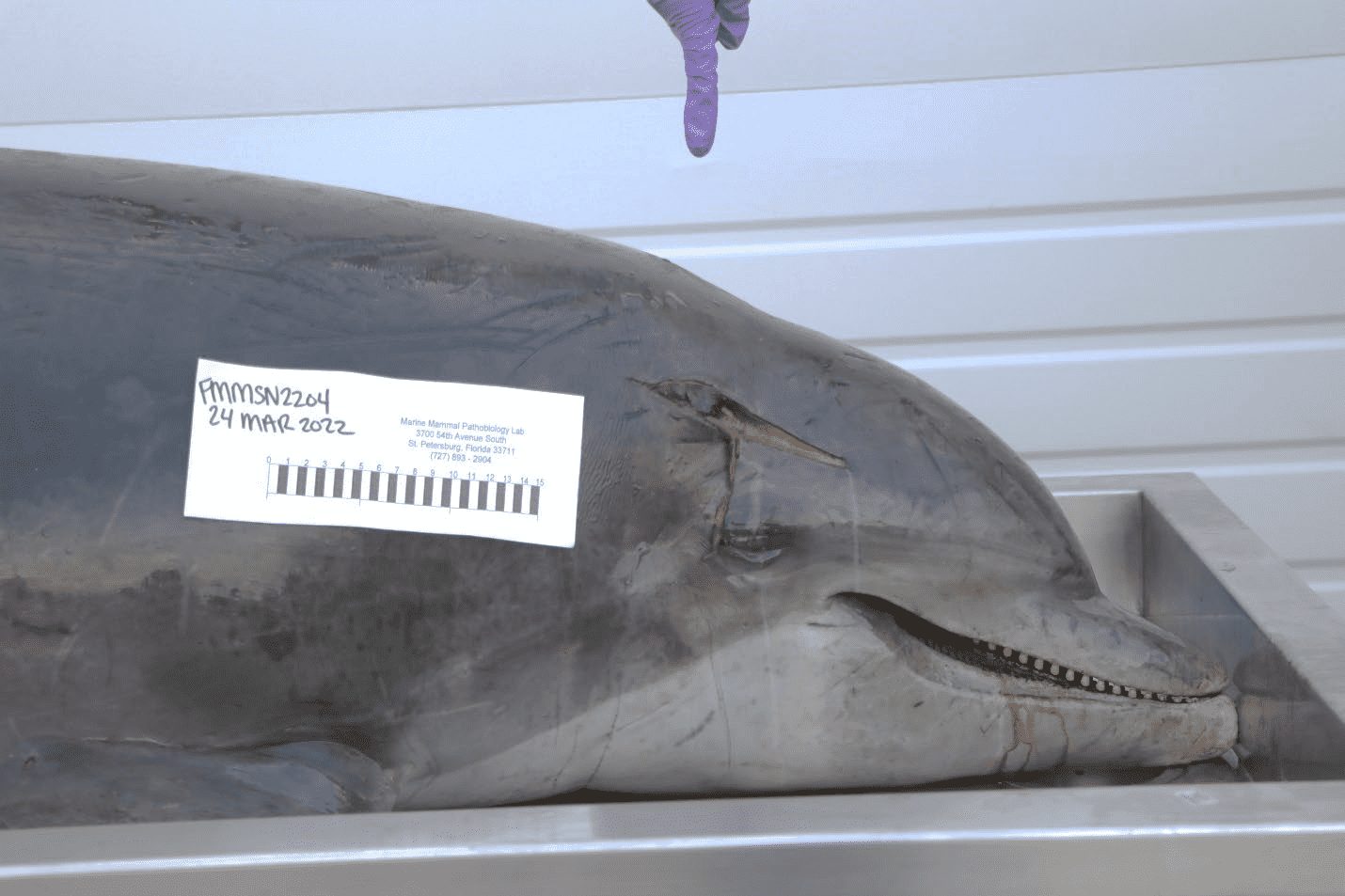The National Oceanic and Atmospheric Administration (NOAA), a federal entity, reports a bottlenose dolphin stranded itself and then died on the shores of Quintana Beach on April 10. NOAA is offering up to $20,000 for information on the multiple people who allegedly interacted with and injured the mammal before it died.
“Harassing, harming, killing, or feeding wild dolphins is prohibited under the Marine Mammal Protection Act. Violations can be prosecuted civilly or criminally and are punishable by up to $100,000 in fines and up to 1 year in jail per violation,” an NOAA press release stated.
NOAA investigation determined that the dolphin, a lactating adult female, received a wound above the right eye that was inflicted before the animal died. The trauma that occurred at or near the time of death appeared to have killed the animal.
“Based on the shape, size, and characteristics of the wound, it is suspected that the dolphin was impaled while in a begging position,” the NOAA statement said. “Begging is not a natural behavior for dolphins and is frequently associated with illegal feeding. People can help prevent future harm to wild dolphins by not feeding or attempting to feed them. Dolphins fed by people learn to associate people, boats, and fishing gear with food, which puts dolphins and people in harmful situations.”
According to NOAA, video stills from the dolphin’s beaching could aid in identifying individuals with direct knowledge of the event. Anyone who can identify the people in the photographs is encouraged to contact NOAA’s Office of Law Enforcement Hotline at (800) 853-1964. Anonymous tips are welcome.
The reward is intended for information leading to the successful identification, prosecution, arrest, conviction, or civil penalty assessment of one or all person(s) responsible. Any information obtained and deemed useful could be rewarded.
Below is the NOAA List of Do’s and Don’ts for Stranded Marine Mammals
Do Not:
- DO NOT throw the animal back into the sea. Marine mammals that become stranded may become ill or injured. Returning animals to the ocean cause delays in examination and treatment and frequently results in the animal re-stranding in a worse condition.
- DO NOT attempt to swim with the animal if it returns to the water on its own.
- DO NOT cover or obstruct the blowhole if the animal is alive. Make an effort to keep sand and water away from the blowhole.
- DO NOT take any parts (tissues, teeth, bones, or gear, for example) from dead animals. The Marine Mammal Protection Act still applies to them.
- DO NOT allow pets to approach alive or dead marine mammals.
Do:
- DO keep crowds and noise levels to a minimum to avoid causing additional stress to the animal.
- DO report all dead marine mammals, including those that have decomposed.
- DO prioritize human safety over animal safety. If the conditions are hazardous, do not approach the animal.
- DO continue to care for the animal until rescuers arrive, but proceed with caution. Marine mammals have the potential to be dangerous and/or disease carriers. Keep a safe distance between the head and the tail. Also, avoid inhaling the animal’s expired air and keep contact with the animal to a minimum (use gloves if necessary).
- If the animal is still alive, DO splash water on its skin to keep it moist and cool. Use wet towels to keep the skin moist and prevent sunburn.
Last March, NOAA offered a $20,000 reward for information leading to the successful prosecution of anyone responsible for the death of an entangled green sea turtle. It was discovered in a homemade net near a kayak launch between Spruce Creek Park and Divito Park in Port Orange, Florida.
An autopsy on the turtle determined it drowned after being caught in a fishing net.
Historically, NOAA reports, green turtles were hunted for their fat, meat, and eggs, causing global population declines. The most serious threats to green turtles are bycatch in commercial and recreational fishing gear, vessel strikes, loss of nesting habitat due to coastal development, and climate change.







were doomed